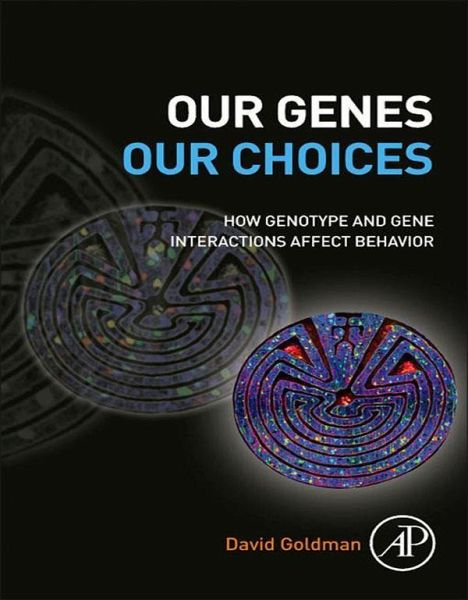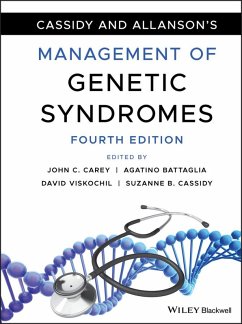
Our Genes, Our Choices (eBook, ePUB)
How Genotype and Gene Interactions Affect Behavior
Versandkostenfrei!
Sofort per Download lieferbar
40,95 €
inkl. MwSt.
Weitere Ausgaben:

PAYBACK Punkte
20 °P sammeln!
Our Genes, Our Choices: How Genotype and Gene Interactions Affect Behavior - First Prize winner of the 2013 BMA Medical Book Award for Basic and Clinical Sciences - explains how the complexity of human behavior, including concepts of free will, derives from a relatively small number of genes, which direct neurodevelopmental sequence. Are people free to make choices, or do genes determine behavior? Paradoxically, the answer to both questions is "yes," because of neurogenetic individuality, a new theory with profound implications. Author David Goldman uses judicial, political, medical, and ethic...
Our Genes, Our Choices: How Genotype and Gene Interactions Affect Behavior - First Prize winner of the 2013 BMA Medical Book Award for Basic and Clinical Sciences - explains how the complexity of human behavior, including concepts of free will, derives from a relatively small number of genes, which direct neurodevelopmental sequence. Are people free to make choices, or do genes determine behavior? Paradoxically, the answer to both questions is "yes," because of neurogenetic individuality, a new theory with profound implications. Author David Goldman uses judicial, political, medical, and ethical examples to illustrate that this lifelong process is guided by individual genotype, molecular and physiologic principles, as well as by randomness and environmental exposures, a combination of factors that we choose and do not choose. Written in an authoritative yet accessible style, the book includes practical descriptions of the function of DNA, discusses the scientific and historical bases of genethics, and introduces topics of epigenetics and the predictive power of behavioral genetics. - First Prize winner of the 2013 BMA Medical Book Award for Basic and Clinical Sciences - Poses and resolves challenges to moral responsibility raised by modern genetics and neuroscience - Analyzes the neurogenetic origins of human behavior and free will - Written by one of the world's most influential neurogeneticists, founder of the Laboratory of Neurogenetics at the National Institutes of Health
Dieser Download kann aus rechtlichen Gründen nur mit Rechnungsadresse in A, B, BG, CY, CZ, D, DK, EW, E, FIN, F, GR, HR, H, IRL, I, LT, L, LR, M, NL, PL, P, R, S, SLO, SK ausgeliefert werden.













